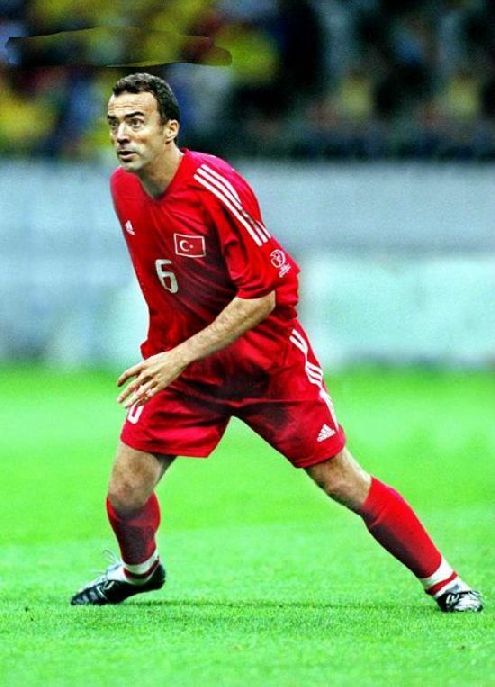The World Cup should be watched with a grain of salt

Turkey's Arif Erdem, shown here during his playing days for the national team, was arrested two weeks ago for his alleged involvement in match-fixing.
Although the playoffs (hockey and/or basketball, take your pick) still sit between us and the summer, the Canadian Broadcasting Corporation has already begun to promote their coverage of this year’s World Cup of Soccer in South Africa.
There’s a growing an air of excitement surrounding the tournament. After all, it’s the biggest sporting event in the world, even more popular than the Olympics.
Unfortunately, this time around I’m going to be watching the World Cup with a pretty sceptical eye.
My disillusionment began in Dec. 2008 as I read Declan Hill’s The Fix, an investigation into the world of sports fixing by a journalist who used to work with the CBC and the British Broadcasting Corporation.
I reviewed the book on my now defunct blog, but in short: Hill uncovered a far-reaching criminal underworld that exerts its influence over many sporting events. Hill chose to focus his investigation on soccer matches and his findings were startling.
According to him, there are two kinds of match-fixing scenarios.
1) Internal – When a member of a team gives incentives to officials or the players on opposing clubs to give his team an advantage.
Author Joe McGinniss details this kind of fix in The Miracle of Castel Di Sangro when he overhears several players discussing throwing their final game of the season against Bari. They had been asked to do this “favour” to insure that Bari would be promoted to Serie A.
2) External – When an outsider influences the outcome of a match for personal gain.
Obviously, this is the more typical kind of sporting corruption, with the Black Sox scandal, when the Chicago White Sox threw the 1919 World Series at the behest of Arnold Rothstein, serving as a sterling example.
In The Fix, Hill uncovers evidence of many professional matches being thrown world-wide. The climax of the book is when a mobster assures him that the World Cup itself is fixed. The gangster predicts the results of a handful of matches, down to when the goals are scored.
Hill watches with growing horror as each one of the games ends just as described.
Why is this pertinent now? Because last November German police arrested 15 people for fixing more than 200 games. Two weeks ago, Turkish police detained 40 people, including former international Arif Erdem, for their involvement in thrown matches.
Germany’s Bundesliga and Turkey’s Süper Lig are not the best professional soccer league’s in the world, but they are hardly fly-by-night organizations. In fact, the German national team is one of the best sides in the world and a contender for the 2010 World Cup.
With all this in mind, it will be hard to not be cynical when one of the favourites struggles against an opponent this summer. I simply can’t help but be a little jaded after reading The Fix and hearing about recent events in European soccer.